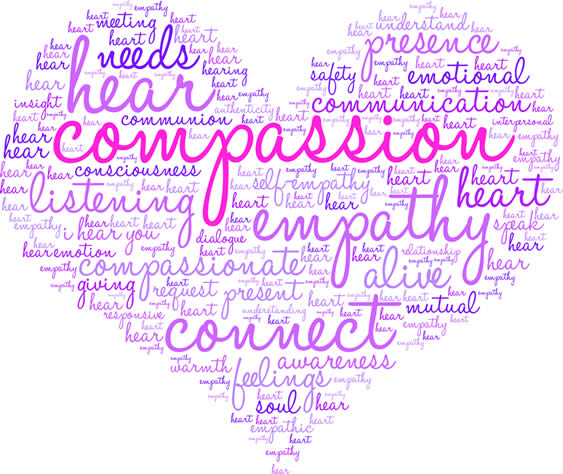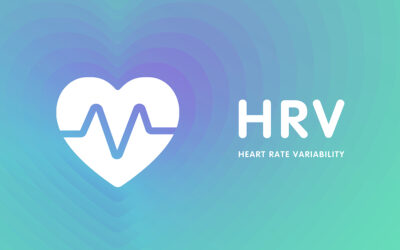Ah, February. The month of love and hearts. Here in the US, we recently celebrated Valentine’s Day. On this day, we express our affections for others. Of course, this is a wonderful thing to do! But what about giving ourselves love and compassion?
Why does it matter? Well, research has found that when we have self-compassion, we also have better health routines. These include things like exercising regularly, quitting smoking, having safe sex, using less alcohol, and having more preventative doctor visits. Additionally, self-compassion also increases personal accountability and responsibility for past mistakes. And, it gives us resilience for life stressors, such as chronic pain. (Oh, that’s good! And it’s something you might want: less pain! Yes, folks. A study found that when subjects gave self-compassion to their pain, they felt less physical pain.i
The Three Components of Self-Compassion
What follows are three proven aspects of self-compassion.
- Kindness vs Harsh Self-Judgement: Expressing care and understanding to yourself; soothing yourself when you are hurting.
- Common Humanity vs Isolation: Realizing you are not alone and that others have felt this way and have gone through these difficult times. Your suffering is part of the human experience.
- Mindfulness vs Rumination: Awareness that you are hurting and expressing compassion to yourself. Allowing yourself to be with your emotions instead of suppressing them.
In other words, Self-Compassion is “Treating ourselves with the same kindness, care and concern that we treat a good friend.”
-Dr. Kristin Neff, Ph.D.
How does your self-compassion rate?
Dr. Kristin Neff, Ph.D., a world leading expert on self-compassion, has a self-test on her website: http://self-compassion.org/test-how-self-compassionate-you-are/. Before you read on, take a moment to go through this short, 26 question survey.
When I took it, I scored absolutely average on my self test: I scored a 3.02. Now, I know I can be hard on myself, but I thought I was getting better. Actually, I’ve been working on this area of my personality through daily hypnosis audios, so I was discouraged I didn’t score better than average. And this way of thinking–wanting to be above average–is an example of self-esteem and judgement, not self-compassion.
I honestly didn’t realize this until after I wrote it and was reviewing the TEDx talkii by Dr. Neff in which she describes the difference between self-esteem and self-compassion. The negative, judgmental way I interpreted my score just underlines my struggle with being kind to myself. Throughout the rest of this article, I will provide highlights from Dr. Neff’s TEDx talk shown below.
Why is self-compassion so hard for us?
Dr. Neff explains the primary reason we are self-critical:
“We believe we need our self-criticism to motivate ourselves. That if we are too kind to ourselves we will be self-indulgent and lazy.”
There you have it. If we don’t beat ourselves up–mentally and emotionally–we will not succeed. The seed of our limiting belief–we must suffer and sacrifice to achieve–is planted. Learn more about changing limiting beliefs in my blog: Transforming Your Limiting Beliefs.
Does this strategy work? Do we accomplish more when we criticize ourselves?
The research says NO. According to Dr. Neff, self-criticism is a threat to our system and invokes fear. Uh-oh, not fear! I’ve been writing a lot about fear lately (Blog: Overcome Fear to Reduce Stress and Heal) because it has such a profound effect on health, and here it is again. It doesn’t matter where the threat is coming from–the outside world or our internal voice: the response is the same. We become afraid and go into protection mode to feel safe. We rev up our sympathetic nervous system–fight or flight response–and self-healing is shut down (Blog: Stress Prevents Self-Healing). All the feel-good, healing chemicals like Oxytocin and Opiates are suppressed. Consequently, we tend to be in a depressed mental state, which is counterproductive to raising motivation and doing our best.
How to Improve Your Self-Compassion
On her website, http://self-compassion.org/, Dr. Neff provides guided meditations and eight exercises for raising your self-compassion. I have downloaded the meditations and plan to give them a listen soon. What are you going to do? Leave a comment on my blog. Let’s start a conversation.
i Albertson, E. (2016, January 21). Self-Compassion in Action [Audio File]. Retrieved from http://wellcoachesschool.com/.
ii Neff, K. (2013, February 6). The Space Between Self-Esteem and Self-Compassion [Video File]. Retrieved from https://www.youtube.com/watch?v=IvtZBUSplr4.



